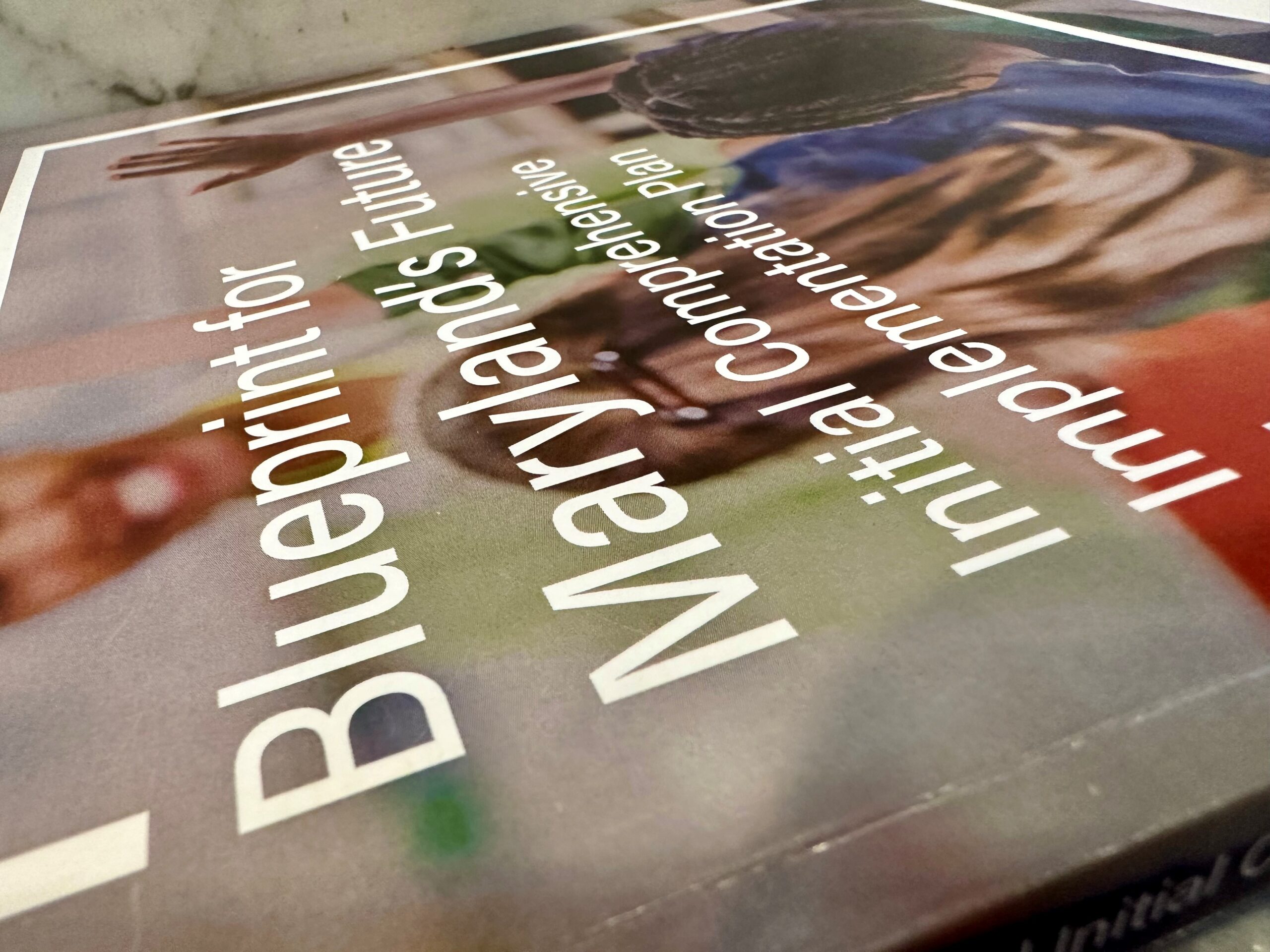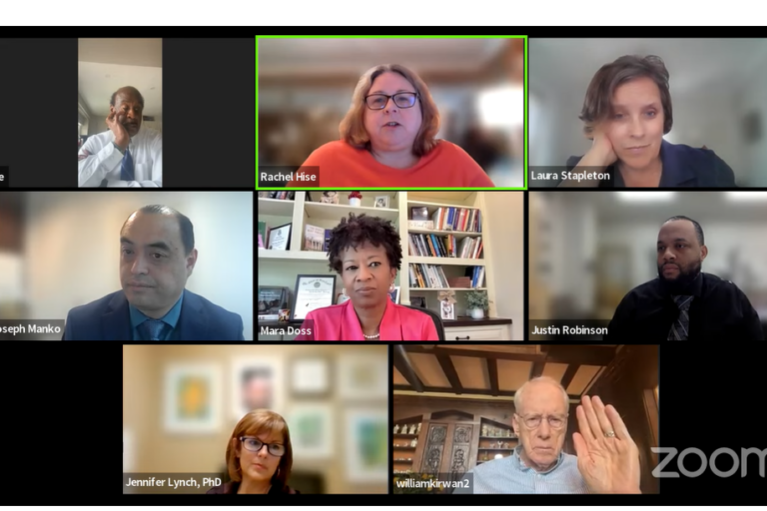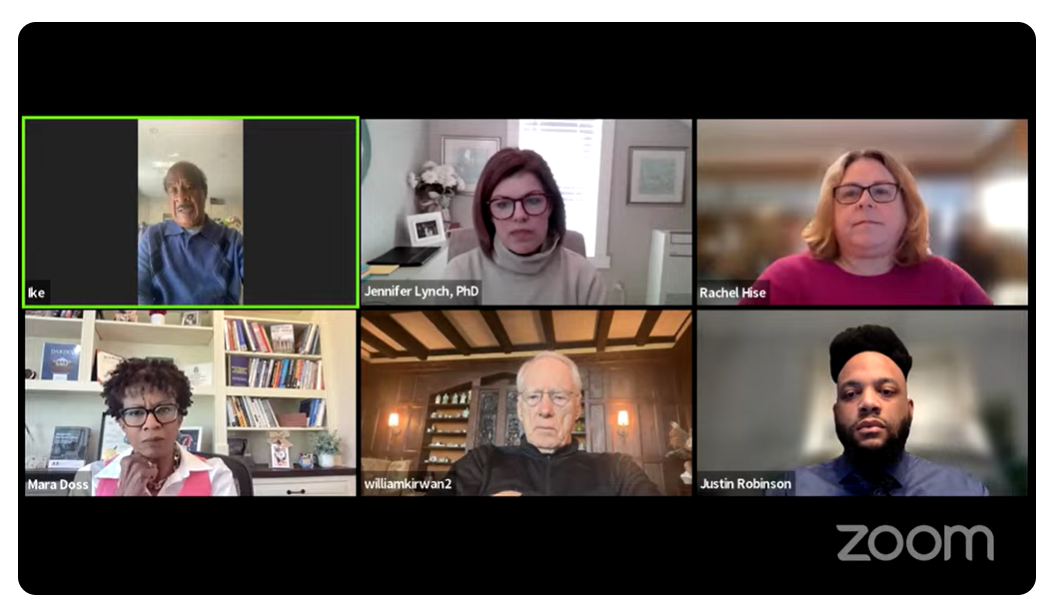Building on the Blueprint: Oversight board approves first reform plans for all local school systems

The Blueprint for Maryland’s Future Accountability and Implementation Board approved all 24 school systems’ initial plans as part of the state’s goal to reform public education.
The documents approved Thursday are the first submission of Blueprint plans, summarizing the reform work that is complete, currently underway or that will be implemented through the 2023-24 school year.
All documents include details on the Blueprint’s focus on early childhood education, hiring and retaining high-quality and diverse teachers, preparing students for college and technical careers and providing additional resources for students in need.
Board Chair Isiah “Ike” Leggett thanked employees at the implementation board and the state Department of Education and members of the state Board of Education for Thursday’s vote, which he called a “significant achievement.”
“This is truly a milestone, but it’s only one major step in a long series of steps,” he said. “There’s an awful lot of work ahead. We put in an awful lot of long time and effort to get to this point.”
Before the seven-member board, also known as the AIB, voted during its online session, Leggett suggested that each school system plan be voted on separately.
The first 20 school system plans were approved unanimously.
Boardmember Jennifer Lynch recused herself from voting on Baltimore County’s Blueprint plan. She works as acting director of the county’s Department of Economic and Workforce Development.
Blueprint Boardmember Justin Robinson recused himself from voting on the Prince George’s County Public Schools plan because he works as a teacher in that school system.
The next three school systems — Calvert, Charles and Garrett — received conditional approval because officials in those jurisdictions must revise documentation on a Career Counseling Memorandum of Understanding (MOU).
Rachel Hise, executive director of the Blueprint board, said one example for the conditional approval is missing job descriptions.
The board voted unanimously to approve, conditionally, Blueprint plans from those three school districts.
Queen Anne’s County’s school district also received conditional approval, because school officials in that Eastern Shore county realized they couldn’t meet a requirement in the Blueprint law to provide a 10% salary increase for teachers in this fiscal year.
Instead, the school district provided $1,000 stipends for teachers in fiscal years 2022 and 2023 and again this current fiscal year.
Part of the stipulation for approval, according to a motion from the AIB: convert and incorporate the stipend into the base salary for all teachers so “the salary increase will be properly reflected in pension calculations and any other calculations that are dependent on salary.”
With all 24 school systems’ Blueprint plans approved from this first submission, the implementation board can release Blueprint funds for this current fiscal year.
A summary on the approved plans is on the AIB website.
Next steps
School officials must submit a second set of education reform planning documents, by March of next year, that detail strategies to accomplish the Blueprint priorities through the 2026-27 school years.
The third and final submission must be turned in to the state in 2027 to cover plans between the 2027-28 school year and 2031-32.
Hise noted some common strengths from all 24 local school system plans, including support for prekindergarten expansion and enrollment, creating new partnerships with state agencies and other organizations and developing career counseling programs for middle and high school students.
Some improvements school systems could make, she said, include developing career ladders for staff, developing and implementing math and literacy plans and assessing how to support students who aren’t college and career ready by the 10th grade.
Hise said staff with the AIB, state Department of Education and other state agencies will provide technical assistance before a second submission of Blueprint plans are due in March.
Later in the meeting, the AIB reviewed recommendations to update the statewide Blueprint comprehensive plan that focused on college and career readiness, additional resources for students and governance and accountability.
Some of their recommendations include having the state Department of Education develop resources for local school districts to disseminate information on updated college and career readiness standards; providing “research-based” programs to recruit and train English as a Second Language and bilingual teachers; and having department officials provide Blueprint recommendations on local school system plans by June of every year.
Several people provided online suggestions for the Blueprint board in areas such as arts education, which they noted is mentioned in the Code of Maryland Regulations, also known as COMAR.
“The arts are a critical part of a world-class education, including but not limited to supporting children’s academic development, social and emotional wellbeing, and sense of belonging,” wrote Julia Di Bussolo, executive director of Arts Every Day in Baltimore. “The AIB’s inclusion of the arts, and all required subjects in COMAR, is an important step in ensuring that all students in Maryland receive a truly world-class education.”
The implementation board will hold a special meeting Tuesday to discuss and approve updates to the statewide comprehensive plan, which was first approved in December.



 Creative Commons Attribution
Creative Commons Attribution